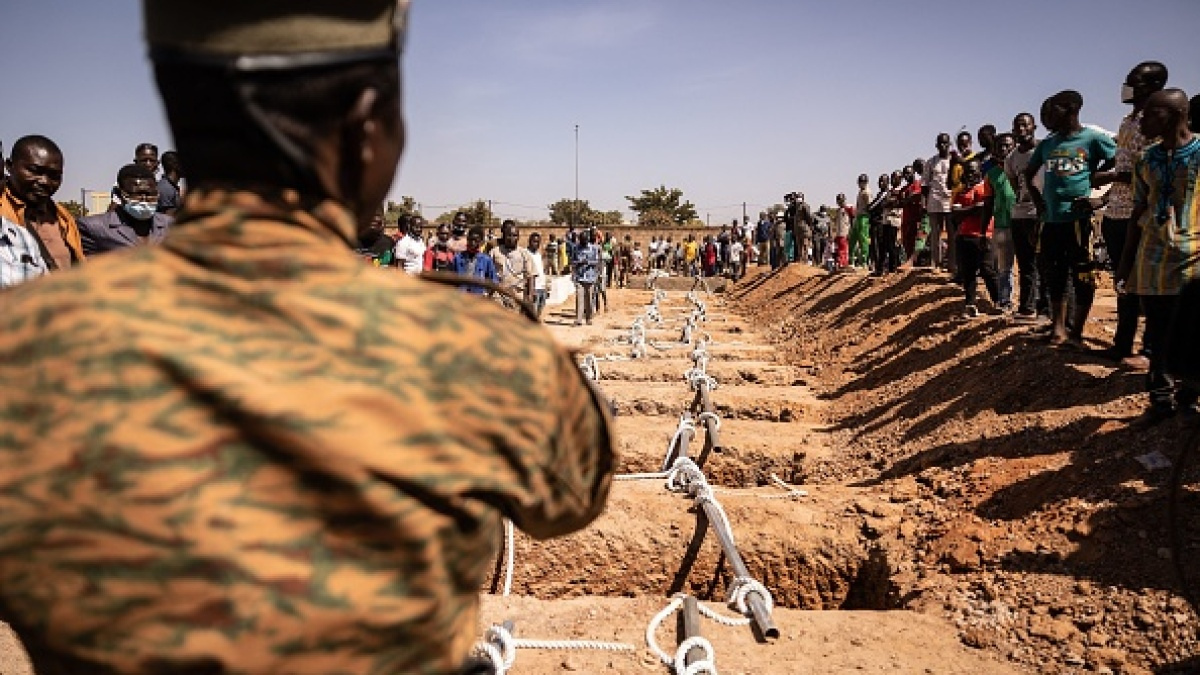The military junta in Burkina Faso has come out to conscript no fewer than a dozen journalists, civil society activists and opposition members for its anti-jihadist fight in a crackdown on dissent, Human Rights Watch has claimed.
Captain Ibrahim Traore, who is transitional President who is Burkina Fasa who came to power in a September 2022 coup, declared in April a year-long ‘general mobilisation’ to give authorities power to requisition people from the age of 18 if needed in the fight against jihadists.
In a statement released on Wednesday, HRW claimed that the junta was targeting alleged dissidents with the broad emergency law.
The group of at least 12 people was informed in writing or over the phone between November 4 and November 5 by security personnel that they would be called up to take part in government security activities.
‘The Burkina Faso junta is using its emergency legislation to silence peaceful dissent and punish its critics,’ Ilaria Allegrozzi, senior Sahel researcher at HRW, said in the statement.
Read Also: Burkina Faso Confirms Outbreak Of Dengue Fever Epidemic
On Sunday, the Burkinabe Movement for the Rights of Man and the People said the ruling Patriotic Movement for Preservation and Restoration was ‘carrying out a massive and targeted requisition of citizens, by applying the general mobilisation decree’.
A major conglomerate trade union, the CGT-B, also denounced the ‘arbitrary’ requisitions and ‘the harassment of citizens who have expressed opinions critical of the transitional authorities’.
Burkina Faso is battling a jihadist insurgency that spilled over from neighbouring Mali in 2015 and has left more than 17,000 civilians and soldiers dead and displaced two million people.
In another report, the government of Burkina Faso confirmed on Friday the conclusion of an agreement with Russia for the development of a nuclear power plant to fulfill the energy needs of its people, a significant portion of whom still lack access to electricity.
As of last year, Burkina Faso has been under the authority of a military junta and has actively pursued a more varied set of international alliances, notably drawing nearer to Russia.
‘The government of Burkina Faso has signed a memorandum of understanding for the construction of a nuclear power plant,’ it said in a statement.
‘The construction of this nuclear power plant in Burkina Faso is intended to cover the energy needs of the population,’ it added.
The signing ceremony took place at the Russian Energy Week in Moscow, with the presence of Burkina Faso’s energy minister Simon-Pierre Boussim and Nikolay Spassky, the deputy director general of Russia’s state atomic energy agency Rosatom.
